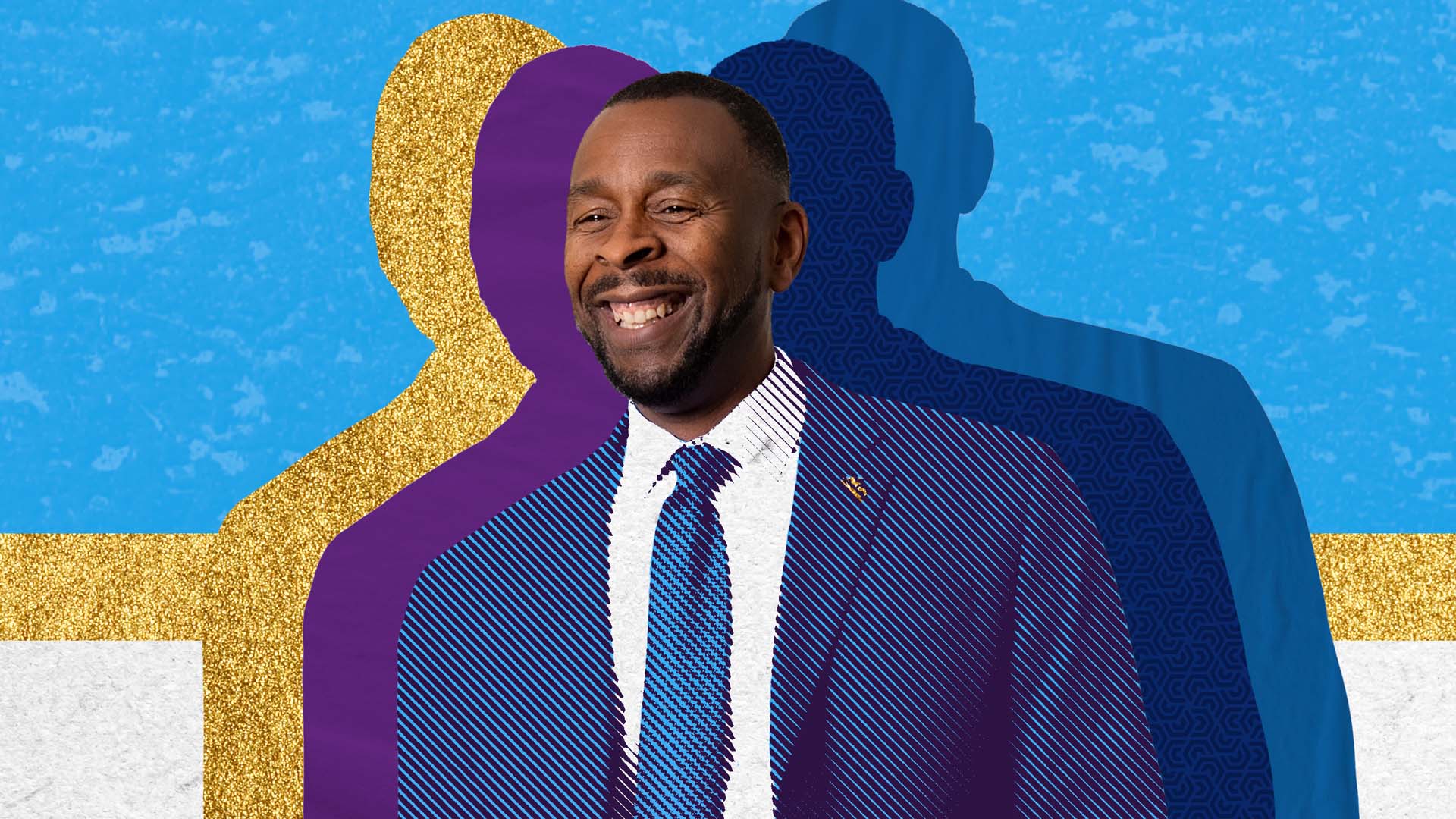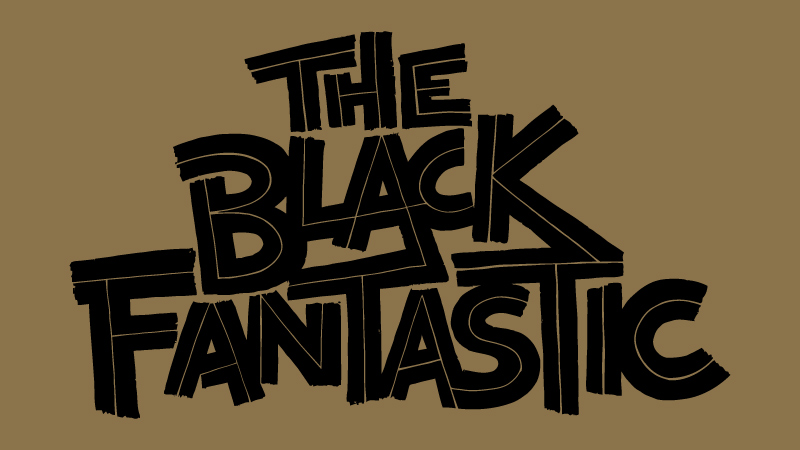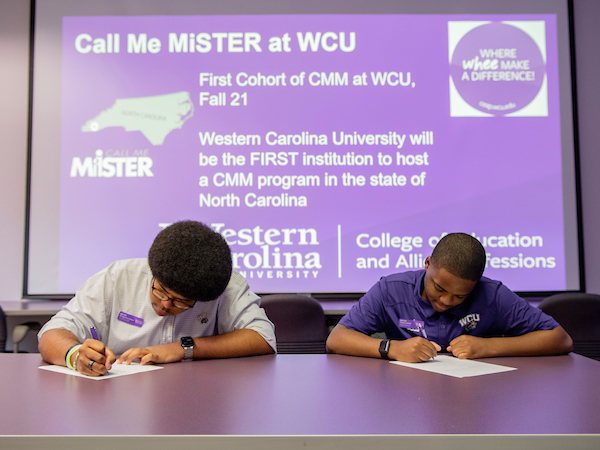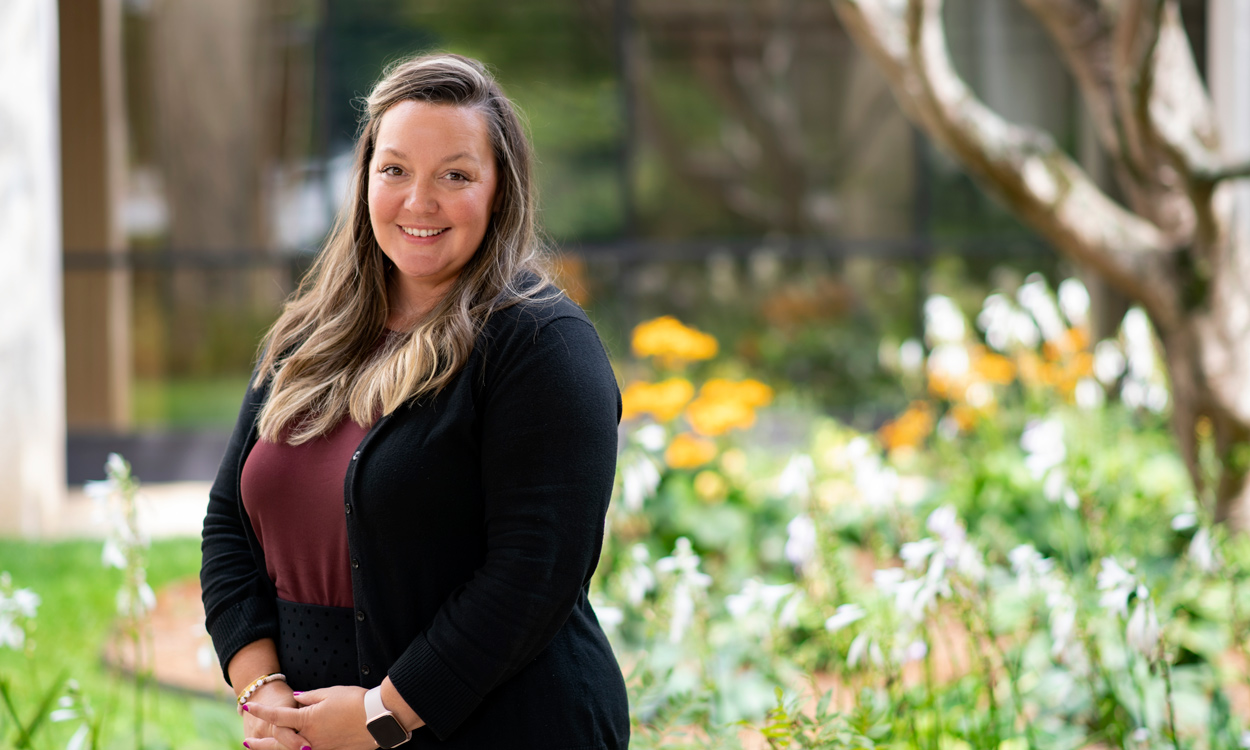


“The Black Fantastic” is a project the University Communications and Marketing team
created as a means to highlight excellence among a few of WCU’s Black faculty and
staff members. As we celebrate Black History Month, this is an artistic and creative
look at some of the people who are helping to shape and mentor the great minds of
the future. In their own words, each was asked to respond to the phrase, “I am proud
of my success because …” The title “The Black Fantastic” was chosen by the participants
and stems from Richard Iton’s book, “In Search of the Black Fantastic: Politics and
Popular Culture in the Post-Civil Rights Era.”
As Munene Mwaniki, WCU associate professor in the Department of Anthropology and Sociology,
explains, “The book broadly discusses the contemporary and lingering political problems
facing Black America since the landmark Civil Rights legislation in the 1960s. Though
still widely heralded, the Civil Rights era did not result in a restructuring of American
politics, rather it found that the foundational aspects of U.S. politics had certain,
if flexible, limits towards social change. In the decades that followed, Black entrance
into the political sphere not only failed in many respects, but also led to a number
of compromises that constrained Black political thought and attempted to separate
Black political thought from its long relationship with Black popular culture. For
Iton, the Black Fantastic represents a challenge, a destabilizing force, to the status
quo that seeks to limit and constrain Black creativity and politics. It is a pushing
of boundaries, a grasping and claiming of space, beyond those limits that only appear
to be concrete in order to create something new, something human. The Black Fantastic
here, then, should be seen as unconventional, with sense towards ignored or underdeveloped
possibilities for those considered Black in the U.S. and throughout the Black diaspora.”
Benny Smith - Executive Director of Communications

I’m proud of my success because I am deliberate in using the investment of time and
energy that a community of people have given me throughout my life to make a lasting
impact in the lives of others.
Like my Jewish neighbor in Hendersonville who constantly challenged my way of thinking
to grow, or the former University of North Carolina at Asheville professor Cathy Mitchell,
who took nothing less than excellence when writing and submitting a news article for
her class. These are moments that helped to shape the person I am today.
As we celebrate Black History Month 2022, I reflect on what it is like being a Black
man in America today and what is my responsibility to the community. Racism, although
not as overt, still exists in many forms.
But then the bigger question for me is how am I becoming part of the solution? How
am I helping people who may not have as much interaction with us as Black men to understand
that some of the negative media and cultural entertainment depictions of us are false?
We are strong, smart, attentive, community-minded and yes, we care about ALL people.
As an adjunct college instructor of about 35 students, I repeatedly hear, “You are
the first Black male teacher I have ever had, even throughout public school.” I realize
that this is my one chance to make a lasting impact on them and maybe show them something
different than what they may perceive us to be.
I own that challenge by just being me, the human me. Over the last 15 years, this
has resulted in numerous students attaining their doctoral degrees and landing jobs
such as fashion designers, teachers and even a social media director with a lucrative
career. My success comes from seeing the impact I have made on others because they
are claiming their stake in making life not only better for themselves, but their
communities.
So, to the aunt who taught me how to read at 4, the athletic trainer who took me from
being able to only lift 20 pounds to winning 10 bodybuilding competition awards, the group of Alpha Phi Alpha fraternity brothers for giving me the needed collegial and professional
support and former longtime educator and university president, Dr. Dorothy Cowser Yancy, who
pushed me to get my master’s degree and accreditation in public relations.
THANK YOU. You helped to make me fantastic!

